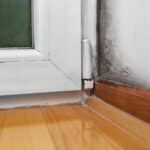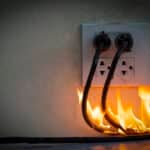A VA loan is a mortgage loan guaranteed by the U.S. Department of Veterans Affairs (VA). 
Like FHA loans, VA loans are backed by the federal government in order to protect lenders against default, an assurance that removes barriers to home buying for prospective homeowners when they attempt to get a mortgage. This loan guarantee has its origins in the Servicemen’s Readjustment Act (more commonly known as the G.I. Bill), passed by U.S. Congress in 1944 to provide a wide range of benefits for soldiers returning from WWII. Eligibility for VA loans – as well as unemployment compensation, vocational training, and other offerings of the G.I. Bill – have since been made available to veterans of subsequent wars and peacetime service.
VA loans serve two primary purposes:
- to finance loans for eligible veterans in regions where private financing is not available, which are generally rural areas, and small cities and towns far from metropolitan and commuting areas of large cities; and
- to help eligible veterans who lack sufficient funds for a down payment to purchase properties.
VA loans offer eligible veterans a number of benefits that are not available to recipients of conventional loans. Note that not all of the following features are available to those receiving FHA loans. VA loan benefits include:
- 100% financing on purchases and refinances. Loans are available up to $417,000 (as of 2009), although this amount is higher in some areas with a higher cost of living and/or inflated real estate markets, such as Hawaii, Alaska and California;
- no Private Mortgage Insurance (PMI). PMI is money paid to a lender to offset losses in the event that the borrower defaults and the lender cannot recover its investment after foreclosure;
- fixed, competitive interest rates;
- the loan is assumable, meaning that borrowers can sell their homes to non-veterans and pass along the benefits of the VA loan to the buyers;
- forbearance, in which the federal government can extend leniency to veterans experiencing temporary financial hardship;
- no prepayment penalty. Penalties are applied to conventional loans when borrowers choose to pay off their mortgages early, which then gives them the option of refinancing at a lower interest rate;
- easy credit and low income standards, compared with conventional loans;
- the builder of a new home is required to give the purchasing veteran a one-year warranty, protecting the borrower against construction that conflicts with VA-approved specifications. Also, the VA will compensate the borrower for correction of structural defects in the home within four years of the loan guarantee if the defects seriously affect livability.
- the borrower may be charged only the fees and other costs that the VA considers appropriate;
- the down payment may be financed. Closing costs and funding fees still apply, however; and
- in California, veterans may be eligible to receive additional benefits from a Cal-Vet Home Loan, such as reusability (you can receive a new Cal-Vet loan whenever you purchase a property as long as you have paid off previous Cal-Vet loans), and earthquake, fire and mudslide protection plans.







